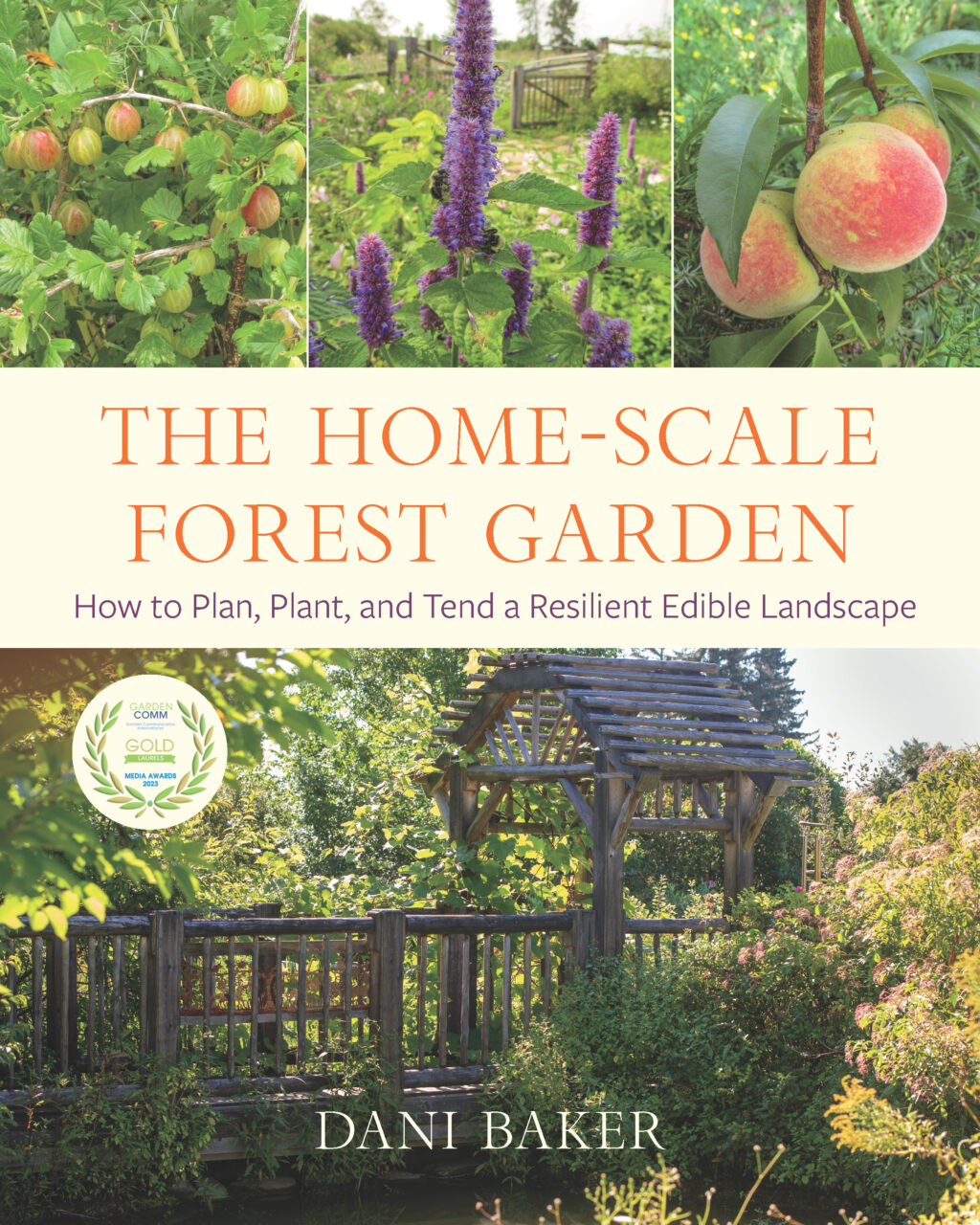 Summary
The Home-Scale Forest Garden: How to Plan, Plant, and Tend a Resilient Edible Landscape
Summary
The Home-Scale Forest Garden: How to Plan, Plant, and Tend a Resilient Edible Landscape is a 325-page manual loaded with charts and photographs describing plants and micro-ecosystems on a former dairy-farm, now organic and Permaculture farm based on an island in New York state. The author organizes and shares what she has learned in her more than ten years of gardening there, including helpful tips and tricks, as well as scores of plant profiles and lessons learned the hard way.
About the Author: Dani Baker and her partner, David Belding, farm at Cross Island Farms on Wellesley Island in the St. Lawrence River between New York and Canada, where they raise certified organic produce and grass-fed beef and goats. Dani is a retired clinical psychologist and a self-taught gardener who learned her craft by immersing herself in reading, poring over nursery catalogs, attending workshops on permaculture and gardening, and enthusiastic trial-and-error experimentation. Dani now conducts workshops and tours at her edible forest garden as well as giving presentations at organic farming conferences and other venues. She takes particular pleasure in inspiring others to try their hand at incorporating permaculture principles in their gardens. (This "About the Author" paragraph from
Chelsea Green website)
Where to get it?
Amazon.com
Chelsea Green Publishing
Barnes and Noble
Related Videos
Related Articles & Websites
Enchanted Edible Forest
Related Threads
Who Is Growing a Food Forest?
